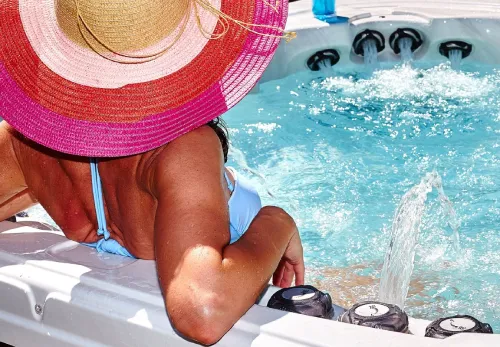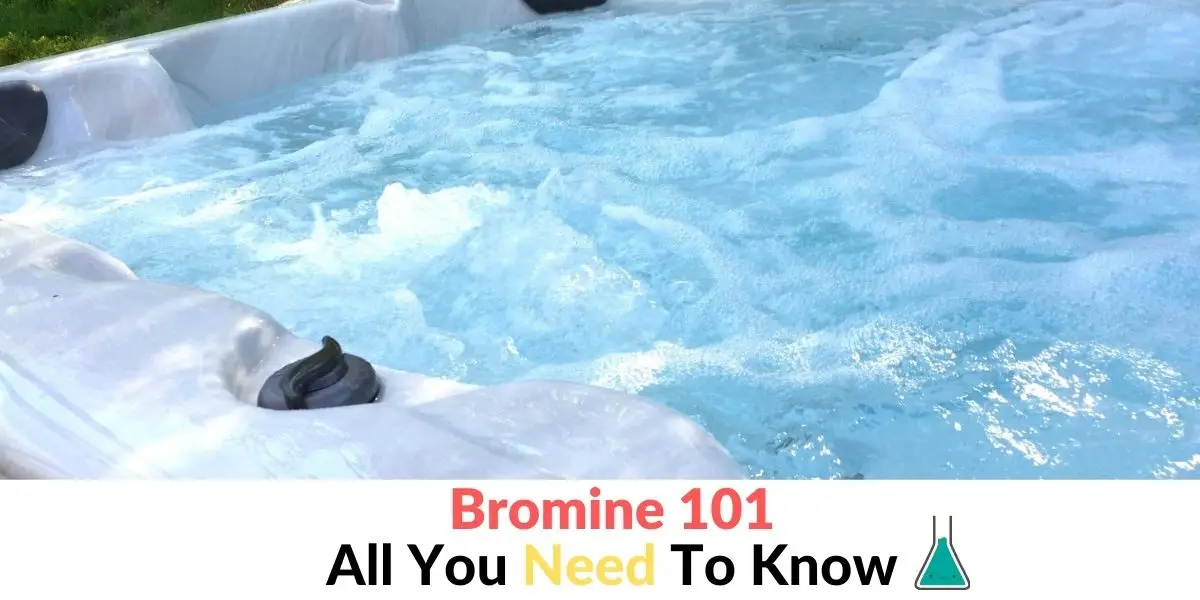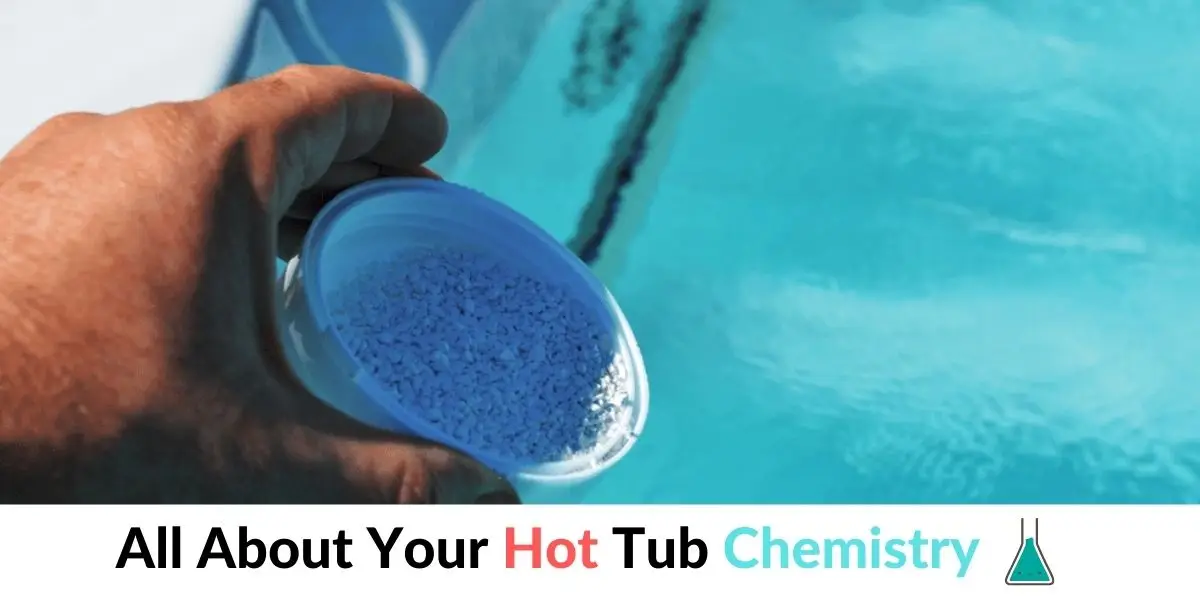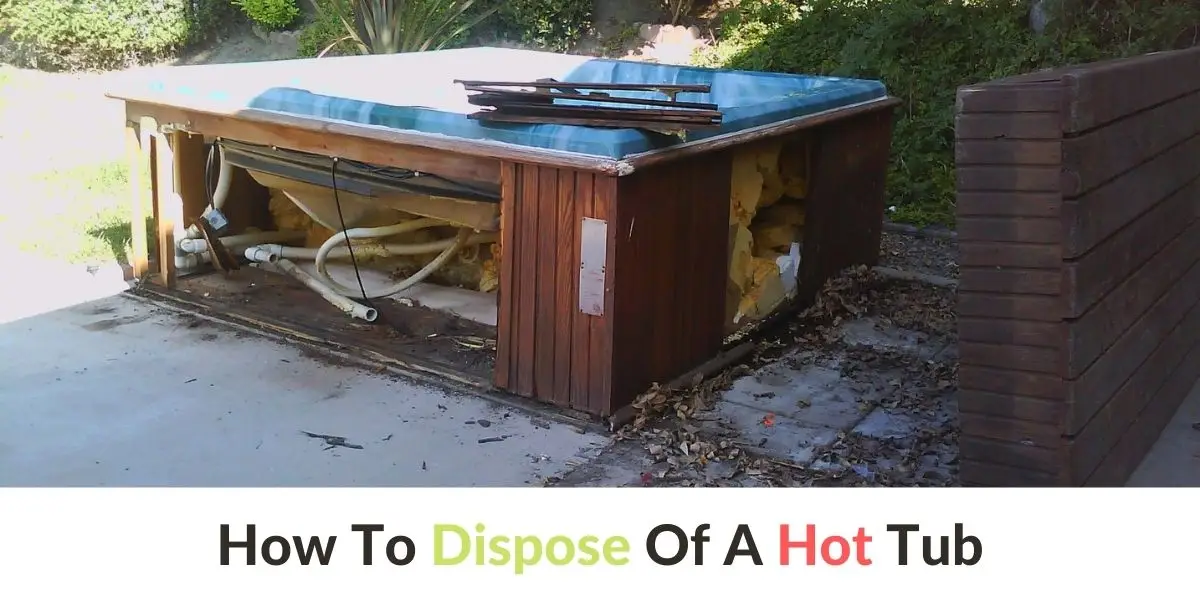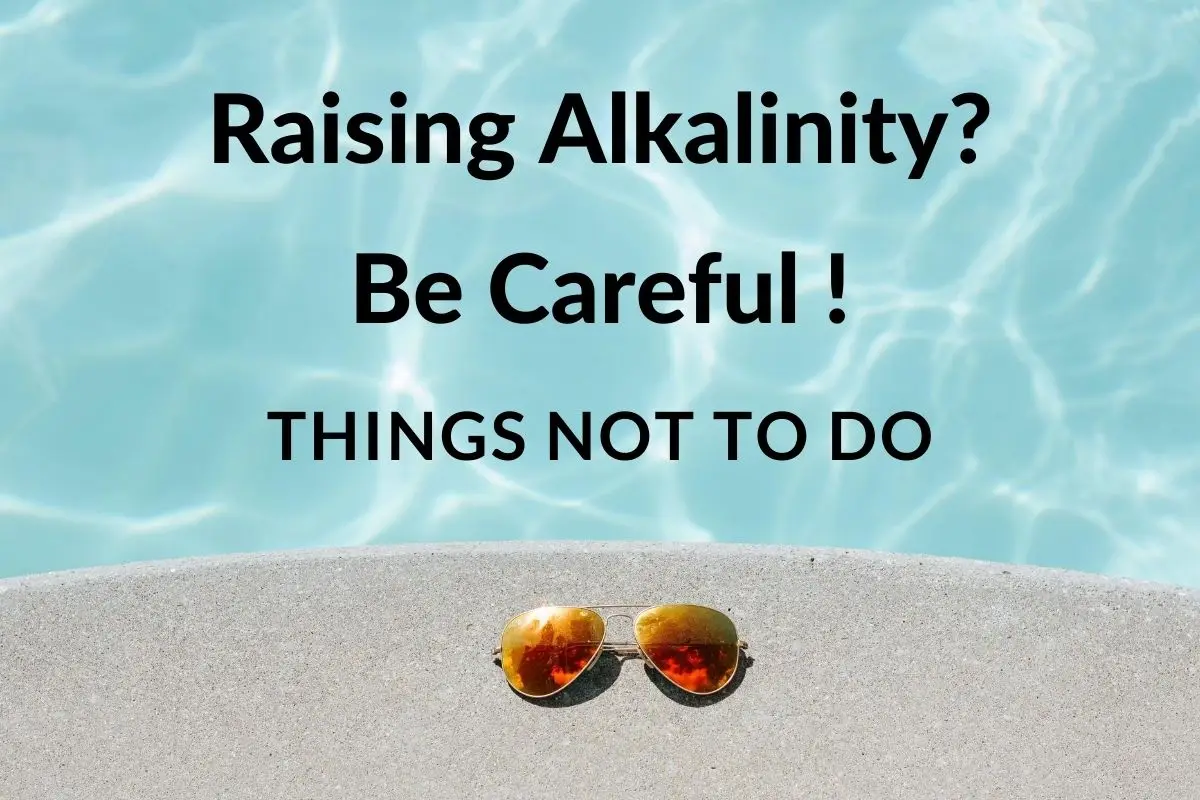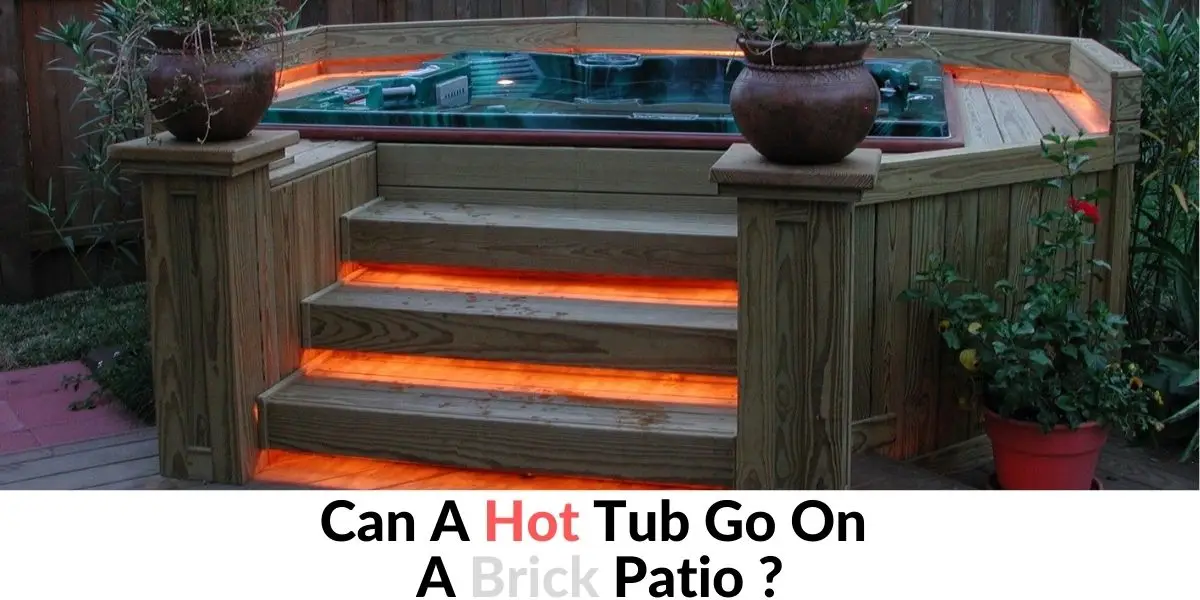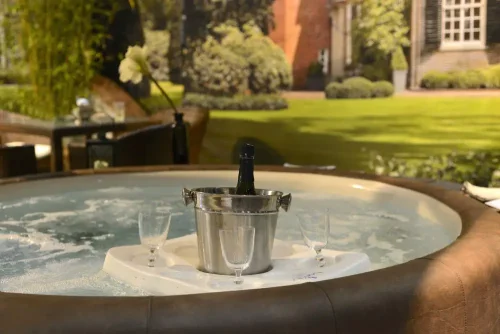Helpful Ideas On How To Store Hot Tub Chemicals
Do you know what’s the best way to store your hot tub chemicals so they last longer and you keep protecting your kids and pets from them?
If you’re a hot tub owner I’m sure you go through lengths to keep your hot tubs in superb condition. How do you do that? Bath it with the best Spa Chemical Products. Read on, learn and share!
The most practical way to keep your hot tub chemical products safely stored is in a clean plastic container. It should be tightened and tucked away on a shelf so it is not within the reach of your kids and pets.
Here are more details on how to store hot tub chemicals.
Do Chemicals Expire?
It might come as a surprise but you should be paying attention to your hot tub chemicals since they can and will expire. You can read my latest article about this by clicking here.
Make Sure To Keep Them Dry
Since you will be dealing with dry and liquid chemicals, they are meant to be diluted in water which causes a chain of chemical reactions. Now, these are strong chemicals not meant for contact with the skin so it’s best to use protective gloves before handling them.
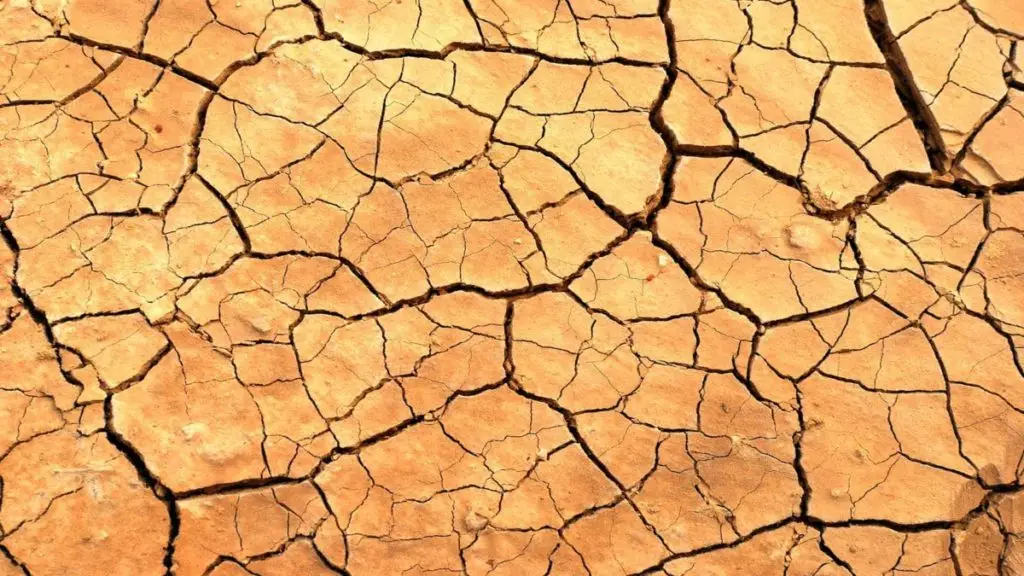
There are usually instructions on the packaging regarding proper use so follow them closely. Water can be seemingly harmless but once introduced to chemicals especially in excess the combined product could be toxic. Moreover, if these chemicals come into contact with other liquid not meant for mixing it may create an unstable solution so it is very important for you to follow these pointers if you are not using them at the moment:
- Store in a dry tight lid container to avoid contents from absorbing moisture. The same goes for chemicals that come in resealable packaging. See if it seals through completely, if not, better empty contents into a new container. This also makes sure moisture and outside factors will not lessen the effectiveness of your hot tub chemicals.
- Do not leave wet scoops inside the plastic container to avoid unforeseeable toxic reaction with the hot tub chemicals. The last thing you want is to open your containers and the contents might pop in your face.
- Keep them stored in a dry, low-humid area with ideal temperature not greater or lower than 50-70°F or as indicated.
Can you Store Hot Tub Chemicals Outside?
As a spa owner, you may have asked yourself, “Can spa chemicals be stored outside?”. In fact, there are a number of factors involved in the proper storage and use of chemicals, not just temperature. It is important to learn exactly what you need to know about how to safely use and store your products to ensure the best hot tub experience possible.
If you’re concerned about properly storing your chemicals, it’s probably best not to store them outside in the winter unless you have an insulated pool shed or garage space. Taking care of your hot tub chemicals and supplies will save you money in the long run and ensure your hot tub is always ready for a dip.
Recommended Storage Ideas
Here are some recommended places to store your chemicals safely.
Closet
Store your chemicals in a lockable storage container. Place this container in a closet or walk-in closet, preferably on a shelf. This is preferable because children and pets will have more difficulty reaching it.
Locked Closet
A good option is a locked closet in your home. It can be a safe place while providing climate control. To make things easier, place the closet near a door so that chemicals are easily accessible.
Hanging Shelf
If you’re having trouble finding space, consider a hanging shoe shelf. It can be placed above a door in your garage or on a wall in your shed.
If storing your chemicals is a problem, it’s best to keep them indoors. Unless you have an insulated pool house or garage space. If you make the decision to take care of your supplies and chemicals, you will actually save money by reducing spoilage.
Prevent Contamination
In case of spills, DO NOT attempt to put it back in its container. Contamination can come from even the tiniest dirt or fluid since this may be a carrier of substances not visible to the naked eye. These external substances may spark unwanted chemical processing when left unattended.
It could be highly dangerous to your health. Under other circumstances, you may brush it up and mix it in the spa water if you are already in the cleaning process depending on what type of chemical it is as long as you know how that product works.
- Do not share scoops among the products. Only allow them to mix in the spa water or as intended in the directions.
Store Beyond Children’s Reach
- Kids are prone to accidents involving ingestion and inhalation of spa chemicals. When you have some hot tub supplies laying around, the safety of your closest ones becomes your top priority. Keep your supplies stored in the top cupboard especially if you have kids in the house. Place them at a height absolutely beyond their reach.
- This one might sound silly but, please do not use colorful and attractive containers to avoid confusion with sweet treats. That also helps to keep it out of children’s sight. Kids can be really resourceful. They might try and grab the hot tub supplies you stored no matter how high on the shelf, as long as they find it appealing.
- Always label your containers, use dark or same colored containers for all spa chemicals. This makes them easier to identify and helps prevent light from penetrating and heating up your hot tub chemicals.
Can You Store Spa Chemicals Outside?
The answer is yes. Just follow the guidelines below and you’ll be set.
Storage Space Designation
- Opt for waterproof storage kits or units for your hot tub chemical storage. It could be placed inside the house just make sure it’s inaccessible to kids. If the garage is not an option and you don’t have a shed, you could leave the storage outdoors as long as it is away from direct sunlight and nowhere near any water sources paying special attention to extreme changes in weather. If necessary, bring them inside temporarily.
- Make a designated space for your spa chemicals. Do not mix with regular household cleaning products. In case of dealing with tight space issues, at least place them at a different height since they are stronger than the average household cleansers.
- Do not let the dry and liquid spa chemicals share the same shelf unit. Place dry products at a higher level in case of spills or leaks to avoid accidental mixing. Vice versa, make sure to store liquid at the lowest shelf level.
- Do not let it share space with the cupboard for food and bath supplies. Needless to say, this is an equation for disaster. Doing this creates higher chances for confusion among other house members.
- It is best to store hot tub chemicals in their manufactured containers since they are designed to contain them.
- With emphasis, do not place your hot tub chemicals storage kit near the hot tub even if it seems likely to make sense. Sure, you could grab them quicker and could make cleaning a lot easier but please remember the above-mentioned warnings. The goal is to avoid spills, leakages, and contamination.
What Chemicals Are The Best For My Hot Tub?
Here’s a list of essential spa chemicals we found out there.
Sanitizers: Chlorine VS Bromine
- Both are effective in killing contaminants such as bacteria, dead skin cells, and other tub residues while refining the water. You should never use them together because they are made of different chemical components and greatly differ in usage proportions. Drain the tubs completely when switching between the two.
- Oxidizes. Basically, it destroys the bacteria but disappears with it. It kills contaminants faster but evaporates rapidly hence. It needs frequent replacement. It is not the choice for people with sensitive skin. It produces waste products called “chloramines” which gives off a distinctive smell.
- Ionizes. Breaks down the contaminant’s make up without evaporating completely. It is more gentle on the skin but is much difficult to wash off. It is more stable than chlorine and therefore lasts longer but it also reacts slower against contaminants. Produces waste products called “bromamines”.
- This is not actually a chemical but is as significant as sanitizers. You should use this test at least 2 times per week and after each use. Check for factors affecting your status such as total chlorine, total bromine, free chlorine, total alkalinity, pH and total hardness.
Chlorine Boosters and Bromine Boosters. Detects the remaining active components of these cleaners in the tub after draining and re-enforces them so it can still accomplish its job.
Spa Shock Notice the hot tub getting cloudy? Don’t drain your tub yet, it just might need some shocking. No need for any electronic equipment for this one. While adding sanitizers and boosters to your hot tub helps maintain sanitation, doing so also results in residue build-up from all the byproducts.
People are also a primary source of contaminants which include soap, lotion, shampoo, and other stuff lathered onto the body that is washed off while soaking in the tub contributing to residue build-up. Shocking is simply introducing a larger dose of oxidizers into your tub because the regular dose is no longer enough. You should do this every few weeks or when you notice that your hot tub is getting cloudy.
Spa pH & Alkalinity Balancers This is used to check for total alkalinity. TA is the neutralizing or buffering capacity of a solution towards acid. TA is the first thing to check as this will serve as your base level before adding any other components so you don’t go in circles wasting your stash and over-treating your spa water.
Do Hot Tub Chemicals Expire?
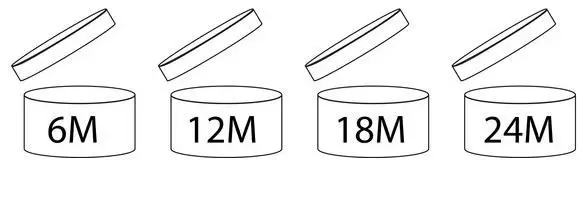
Yes, they do. To add to the already mentioned precautionary steps, before owning any hot tub chemicals make sure you know these products well. Read the labels and learn them like the back of your palm. Below are additional information to look out for:
Read Product Labels
Whatever you choose to use in your hot tub, it is important to know the dos and don’ts of each product.
- Check for the shelf life. Not only will it be a waste of hot tub chemical storage space to keep expired chemicals but they can be potential sources of toxic materials.
- Hot tub chemicals vary in shelf life with some lasting up to years after opening them. Apply the FIFO rule (First in, First out). When refilling your stocks, place the older containers in front to make sure they are used up first. If the labels become hard to read due to fading or rotting, mix in the spa water immediately or if in doubt dispose of the chemicals accordingly.
- Aside from reading labels, share information on how to store hot tub chemicals among other house members. Always make it a habit to share updates regarding the use and storage of these products.
Now that we’ve covered responsible spa chemical storing, let’s also check out the next likely question.
How To Store Your Hot Tub?
While there may be various reasons to pack and stow your hot tub after purchasing it and spending dollars on maintenance and spa chemicals, the most common reason is that it’s winter or you’re leaving town for a couple of weeks or longer. Here are some pointers before closing up your spa.
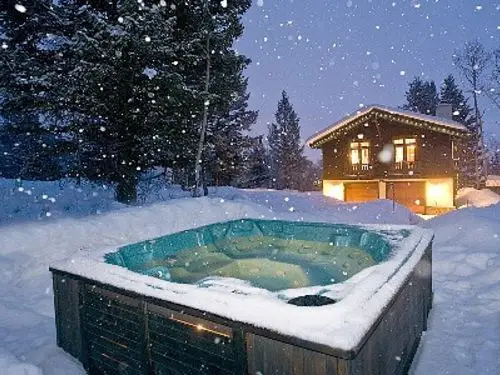
- Start with draining water from the tub.
- Clean and dry your hot tub. Use clean water to rinse chemical cleaners off of your tub and make sure to wipe down your shell with a dry absorbent cloth or sponge.
- Make sure the covers are clean and dry as well.
- And lastly, cover your tub. Make sure the cover has a snug fit and that no rainwater or any foreign object gets in the tub while you leave it unattended especially when winter comes because freezing temperatures could damage the inner hot tub material.
- This isn’t actually the 5th step but it is a good habit to add to your regimen. After carrying out the first 4 guidelines, routinely do this every few months or as needed depending on your usage to maintain your hot tub in mint condition. Also, look out for other products that could help you achieve this.


